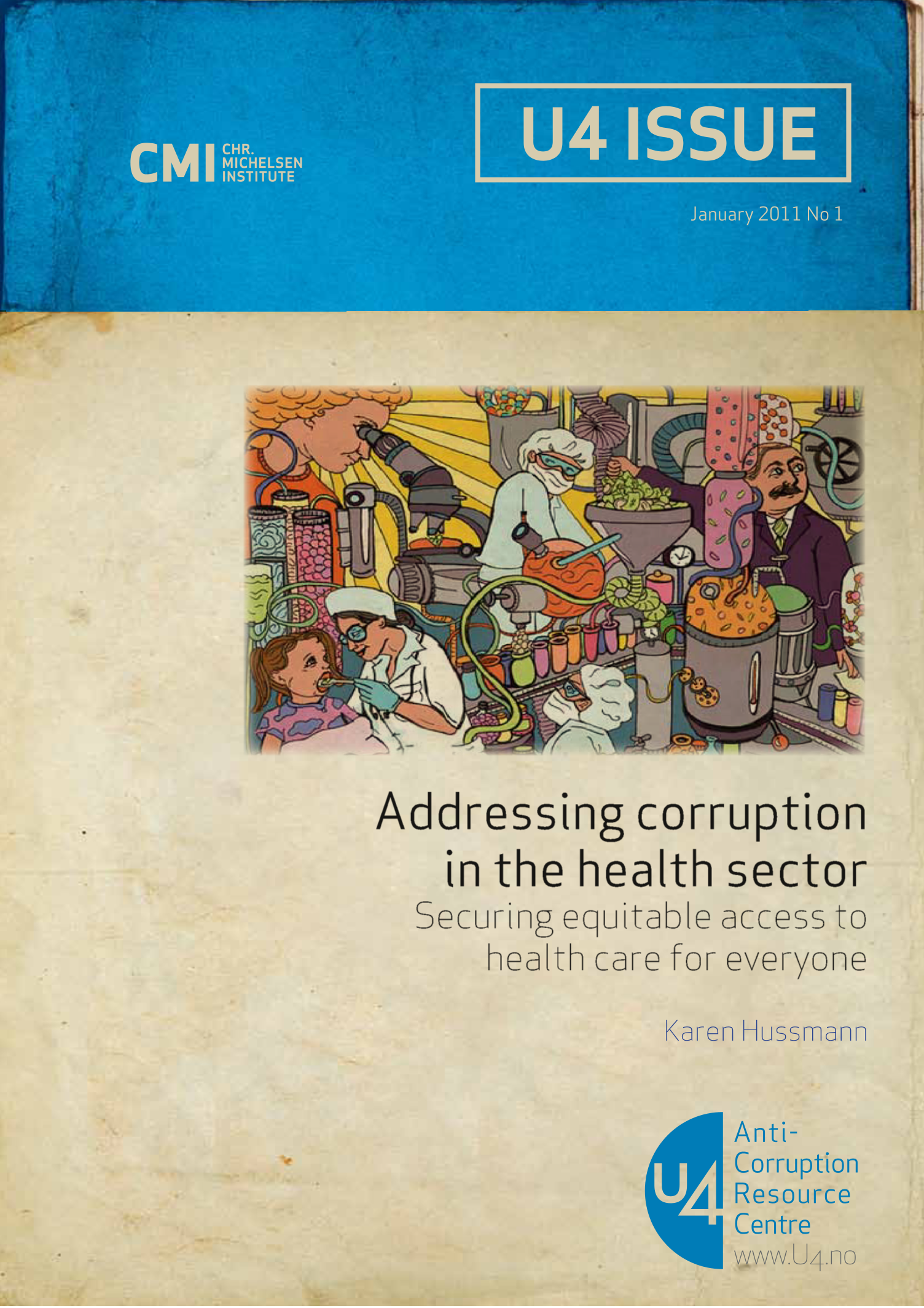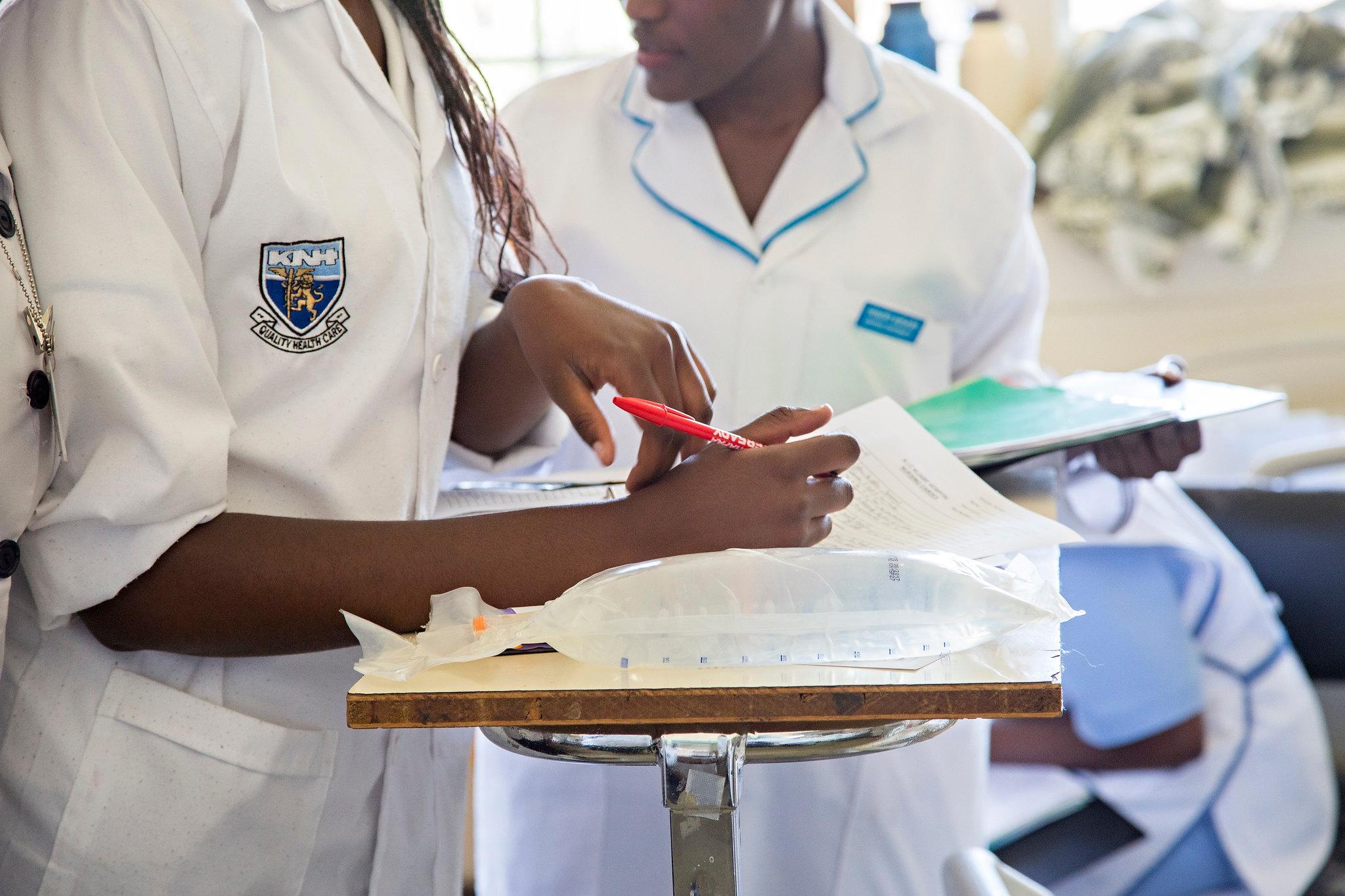U4 Issue
Addressing corruption in the health sector: Securing equitable access to health care for everyone
The development community is striving to achieve results and value for money with its investments in health around the world. Yet, donors often work in countries where the risk of corruption is high and where public management and oversight systems are weak. In many countries, international assistance has strengthened accountability bodies such as anti-corruption commissions and the Office of the Auditor General. As the capacity of these bodies increases, so does the likelihood of corruption being uncovered at the sector level. Sector advisers need the knowledge and skills to prevent, detect and address corruption in their sectors.

Cite this publication
Hussmann, K.; (2011) Addressing corruption in the health sector: Securing equitable access to health care for everyone. Bergen: U4 Anti-Corruption Resource Centre, Chr. Michelsen Institute (U4 Issue 2011:1)
Disclaimer
All views in this text are the author(s)’, and may differ from the U4 partner agencies’ policies.
This work is licenced under a Creative Commons Attribution-NonCommercial-NoDerivatives 4.0 International licence (CC BY-NC-ND 4.0)


